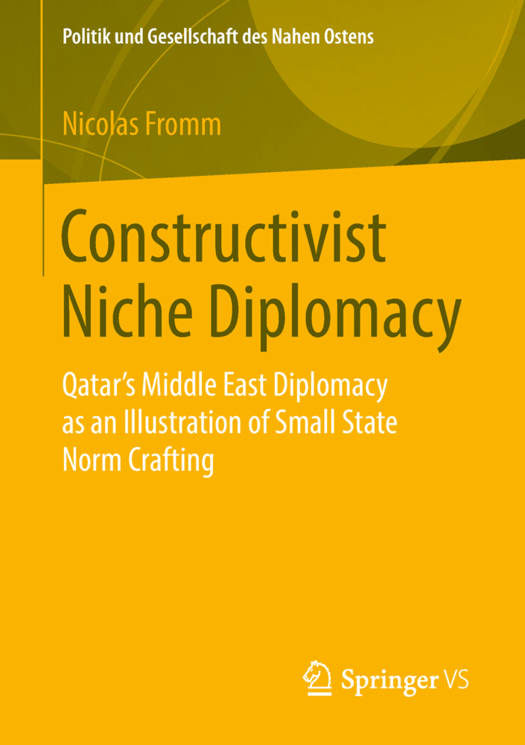
- Afhalen na 1 uur in een winkel met voorraad
- Gratis thuislevering in België vanaf € 30
- Ruim aanbod met 7 miljoen producten
- Afhalen na 1 uur in een winkel met voorraad
- Gratis thuislevering in België vanaf € 30
- Ruim aanbod met 7 miljoen producten
Zoeken
Constructivist Niche Diplomacy
Qatar's Middle East Diplomacy as an Illustration of Small State Norm Crafting
Nicolas Fromm
€ 68,95
+ 137 punten
Omschrijving
Nicolas Fromm explores norm-based strategies small states can use to distinguish themselves internationally in order to compensate for their lesser geopolitical weight. Using the example of Qatar, the author shows that such strategies might include a sort of norm entrepreneurship which goes beyond the advocacy of universal norms and implies the development of genuinely new norms ('norm crafting') in pursuit of regional political influence. To shed light on the stunning rise of Qatar from a background actor to a protagonist in international diplomacy, the case study analyses the distinctive use of norm crafting in the country's Middle East diplomacy under the reign of Emir Hamad (1995-2013). To unfold the potential of strategic normative innovation, Qatar seems to have imitated the attitudes and attributes of established norm entrepreneurs such as international organizations.
Specificaties
Betrokkenen
- Auteur(s):
- Uitgeverij:
Inhoud
- Aantal bladzijden:
- 235
- Taal:
- Engels
- Reeks:
Eigenschappen
- Productcode (EAN):
- 9783658225186
- Verschijningsdatum:
- 26/06/2018
- Uitvoering:
- Paperback
- Formaat:
- Trade paperback (VS)
- Afmetingen:
- 148 mm x 210 mm
- Gewicht:
- 299 g

Alleen bij Standaard Boekhandel
+ 137 punten op je klantenkaart van Standaard Boekhandel
Beoordelingen
We publiceren alleen reviews die voldoen aan de voorwaarden voor reviews. Bekijk onze voorwaarden voor reviews.











